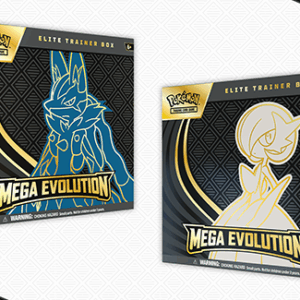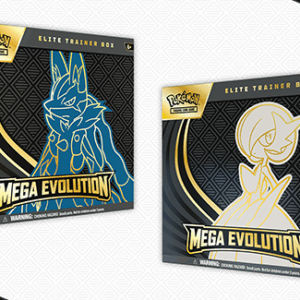When Wizards of the Coast first announced their collaboration with Marvel, starring the ever-popular Spider-Man, fans of both franchises felt a thrill running up their arms. This was expected to be a magical pairing of two cultural titans, perfectly poised to draw in not only Magic: The Gathering veterans but also those who might otherwise consider themselves mere spectators of the tabletop gaming world. Spider-Man’s charisma reaches far beyond comic book aficionados, making his collaboration with Magic look like a game-winning move on paper. However, what should have been an exhilarating leap into Marvel’s dynamically vibrant universe turned out to be more of a teetering stumble, predominantly attracting high-end collectors while leaving gameplay enthusiasts tangled in unfulfilled promises.
The primary issue lies not in the characters brought into play, but in the structural disconnect of the set, a phenomenon akin to setting your expectations to swing high like the city-swinger himself, only to end up swinging into a brick wall of mismatched intentions. Promised as a refreshing tide turning within Magic’s stagnant pond, its debut saw a quiet rollout in local game stores (LGSs). The buzzed-about release eventually muffled its voice amidst Marvel’s fatigue phenomenon and fears of paying exuberant prices. As aficionados debated over high-end character cards, general players found themselves at an impasse, caught between a web of desires and the set’s limitations.
So what led to this peculiar identity crisis? Well, dear reader, gather round as we indulge you in a tale of intentions askew due to evolving plans. Wizard design blocks initially intended to release a 100-card, Commander-focused product, but after analyzing underwhelming receptions to similar mini sets in the past, they turbocharged Spider-Man’s new adventure into a broader, 188-card draftable format, bolstering its ranks to legalize in Standard play. But alas, the hurried expansion under the stress of a ticking clock inevitably frayed at the edges, leaving visible seams in creative deliverance.
The resultant brew is a set slender in Standard’s eyes. Five draft archetypes are a poor replacement for the traditional ten, narrowing the exciting unpredictability of gameplay variations. Spider-Man’s packed set soon dilutes into masses of Spider Human Hero legions whose differences blend into a blurry background, and thus the journey becomes all too familiar and short-lived for those enthralled by novelty. The real game—a repetitive motion instead of an evolving strategy—leaves constructed deck enthusiasts with an impoverished sense of gameplay innovation.
Our web of complications extends into the digital realm. Magical arena players, accustomed to seamless integration with the battleground’s cardboard counterpart, suddenly face jarring discrepancies. Card art and naming begin to diverge, necessitated by the licensing labyrinth. For those bouncing between dining room tables and digital keyboards, this dissonance feels less like a charming quirk and more like an unwelcome interruption.
Not everything falls into shadows, however; collectors, prepare for temptation. The Soul Stone headlines this spectacle—a two-mana, indestructible marvel that resurrects creatures from graveyards with unwavering persistence. As an already expensive bauble, its cosmic foil variant catapults towards a premium four-figure stratosphere, embodying the classic lottery rush. Dive deeper, and we uncover enticing delights beyond sheer glimmer. Anti-Venom and Electro fit snugly into traditional Commander colors, while Gwenom’s remarkable spells unfold a cascade of captivating plays straight from the colorful pages of Marvel’s labyrinthine tales. Meanwhile, the Spectacular Spider-Man infuses life into battle, offering flash and protective sacrifice mechanics that rustle the game table with vibrant tension.
Nevertheless, the set stumbles as it weaves diluted identities into card backs. Clones adrift, Spider-Man variants mushroom into sameness, and Morbius makes an unimpressive thud as if opposing the legendary appeal. Even Peter Parker’s game face lacks the punch expected from Marvel’s iconic figurehead, creating a tale that occasionally feels discordant. The reverberations signal deeper obstacles, where flavor collides with traditional color perceptions—Miles Morales donning shades of green demands acceptance to bend mechanics but meets resistance in the hearts of staunch lore enthusiasts.
This overly familiar yet surprisingly barren draft environment is where you’d expect distinctive traits and clear archetypes—I mean, heavens!—even common cards should gleam with potential. Alas, the set prunes archetypes like a meticulous bonsai artist, refrains from springing surprises, and ultimately lacks the vivacious reinvigoration needed to rejuvenate weekly plays. Without such sparks, players are unlikely to commit to tables brimming with sameness.
Now, when looking at other blockbusters like The Lord of the Rings or Final Fantasy sets, which offered intricate mechanics reminiscent of their source materials, the Spider-Man crossover requires further soul-searching. It wears the mantle of a branded blockbuster: basking in brilliant displays, yet without clearing the essential gameplay bar. The real winners here? High-end collectors, sealed ship sharpshooters, and Spider-Man’s ardent fandom seeking to enrich character-centric collages with sparkly keepsakes.
For those with spending discipline, cherish the virtues of buying singles. Craft a picks list, identify cards that suit decks or dominos, and acquire them thoughtfully. A chance-driven impulse may lead your appetite at the penultimate feast of rarities and collector boosters; however, know this splurge bears steep chances, best served alongside seasoned preparation.
My working notes might aid your own contemplations:
– Swing carefully past a narrowed ambit; alternate tables not as often.
– The Soul Stone is a bewitching wonderland; treasure blindsidedly.
– Anti-Venom and friends are sleek gladiators positioned for play.
– Flavors tease with spontaneity but caution overpowers delight.
– Synchrony eludes, both card and screen, nudging a longing for paper alone.
Embark on this set if your heart leaps for dazzling cards and a handful of cleverly magical manifestations. Shed marathon aspirations here, for the experience is less of an epic journey and more of a casual weekend stroll through Marvel’s artistic villas.






